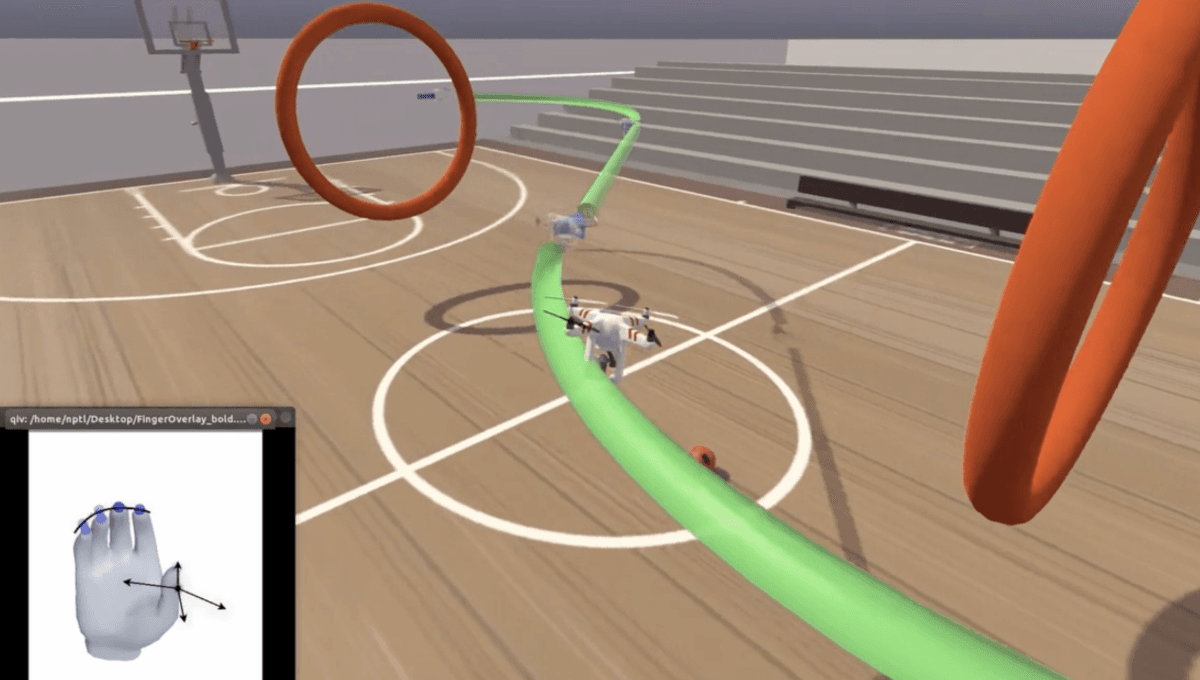
A new brain-computer interface has achieved an “unprecedented” level of control for a person who isn’t able to use their limbs, enabling them to fly a quadcopter in a gaming environment. The technology allows for dexterous finger control by dividing the digits into groups, creating four degrees of freedom when operating a control by thinking.
ADVERTISEMENT GO AD FREE
This isn’t the first time such a brain-computer interface has been tested, but it marks a big leap in the technology in doubling the previous standard for degrees of freedom that was achieved in non-human primates. Prior modes have focused on 2D tasks like cursor control, but this new brain-computer interface allows for complex control that could be applied to gaming, music composition, or controlling robotic prostheses.
The person operating the controls had tetraplegia, which is paralysis in all four limbs. Getting the brain-computer interface set up involved undergoing a surgery in which electrodes were placed in the brain’s motor cortex, exiting the skin so they could connect to a computer. While a more invasive approach than other gaming technologies that have used surface EEG signals, the authors believe that placing the electrodes closer to the neurones means a higher level of fine motor control.
The research participant described the intuitive control of the quadcopter as “like riding your bicycle on your way to work, ‘what am I going to do at work today’, and you’re still shifting gears on your bike and moving right along”. And as for why, of all things, to fly a quadcopter? Well, it’s what that particular research participant was into.
“The quadcopter simulation was not an arbitrary choice, the research participant had a passion for flying,” said Donald Avansino, co-author and computer scientist at Stanford University, in a statement. “While also fulfilling the participant’s desire for flight, the platform also showcased the control of multiple fingers.”
The incredible technology not only allows for an unprecedented degree of control for the user but also addresses a gap that’s often overlooked when solutions are innovated for people who have lost nerve function.
ADVERTISEMENT GO AD FREE
“People tend to focus on restoration of the sorts of functions that are basic necessities – eating, dressing, mobility – and those are all important,” added Jaimie Henderson, a Stanford professor of neurosurgery and co-author of the study. “But oftentimes, other equally important aspects of life get short shrift, like recreation or connection with peers. People want to play games and interact with their friends.”
It’s possible the technology could be built upon to achieve not just dexterous control, but whole-body movement restoration. It may also be capable of controlling vehicles, operating software, or composing music, all with the power of thought.
The study is published in the journal Nature Medicine.
Source Link: “Unprecedented” Technology Enables Paralyzed Person To Fly A Quadcopter Just By Thinking